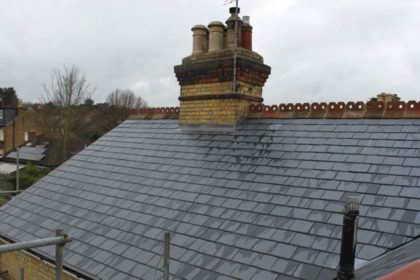 What Maintenance Does a Roof Need?
What Maintenance Does a Roof Need?
Your home’s roof takes a lot of battering so that you don’t have to. From extremes of heat and cold to heavy wind, rain and snow, not to mention debris flying around, the elements can cause your roof a great deal of damage. These could make it unable to do its job of protecting you, so you need to maintain it whenever necessary. But what forms will this maintenance typically take?
Repairs to Roofing Materials
Whether your roof is made from tiles, slates or felt, the materials will at some point be damaged by the weather. Tiles or slates, for instance, can be cracked by high winds or under the weight of snow or pooling water, but the most likely scenario is for water in small cavities to expand and contract when it freezes and thaws. The cracked tiles will need to be replaced, and you’ll also need to check whether the waterproof underlay has also been compromised.
If your roofing material is felt (normally but not always on a flat roof), it can easily be torn, especially by twigs and other debris blown against it by the wind. Tears can usually be repaired, but the roof may need to be replaced if the damage is serious.
Cleaning Your Roof
A tile or slate roof may get overgrown with moss and, although this can look picturesque (especially on an old building), it can trap water that will find its way into your home. Moss is also extremely heavy and can crack your roof.
The growth will need to be cleaned off, but this has to be done very carefully. At all costs, you should avoid blasting it with a high-pressure hose, which can do considerable damage.
Repairs to Flashing and Masonry
Flashing refers to the metal strips that seal the joints between the roof and any structure that protrudes from it, such as a chimney stack. Damaged flashing can compromise the waterproofing just as much as cracked tiles and needs to be replaced.
At the same time, crumbling masonry on your chimney stack or other structures can fall onto the roof, cracking it. Damaged masonry should be either repaired or refaced, depending on the extent of the damage.
Look After Your Guttering
Your gutters and downpipes can be cracked by heavy rain and wind, but they can also get clogged up. This is an especial risk in autumn when leaves, twigs and other debris will be flying around in the wind.
If your guttering isn’t working properly, water can pool on the roof or spill over into the foundations. This makes it essential to regularly clean out and repair your gutters and downpipes.
Who Should Make the Repairs?
While it shouldn’t be beyond an experienced DIYer to clean out gutters, most roof repairs are complex and potentially dangerous to the less experienced. Your best bet is to get the professionals in to ensure the work is done expertly and safely.
Give Empire a call to find out how we can help you with your roofing repairs. Wondering what time of years you should get your roof repaired? Find out here









